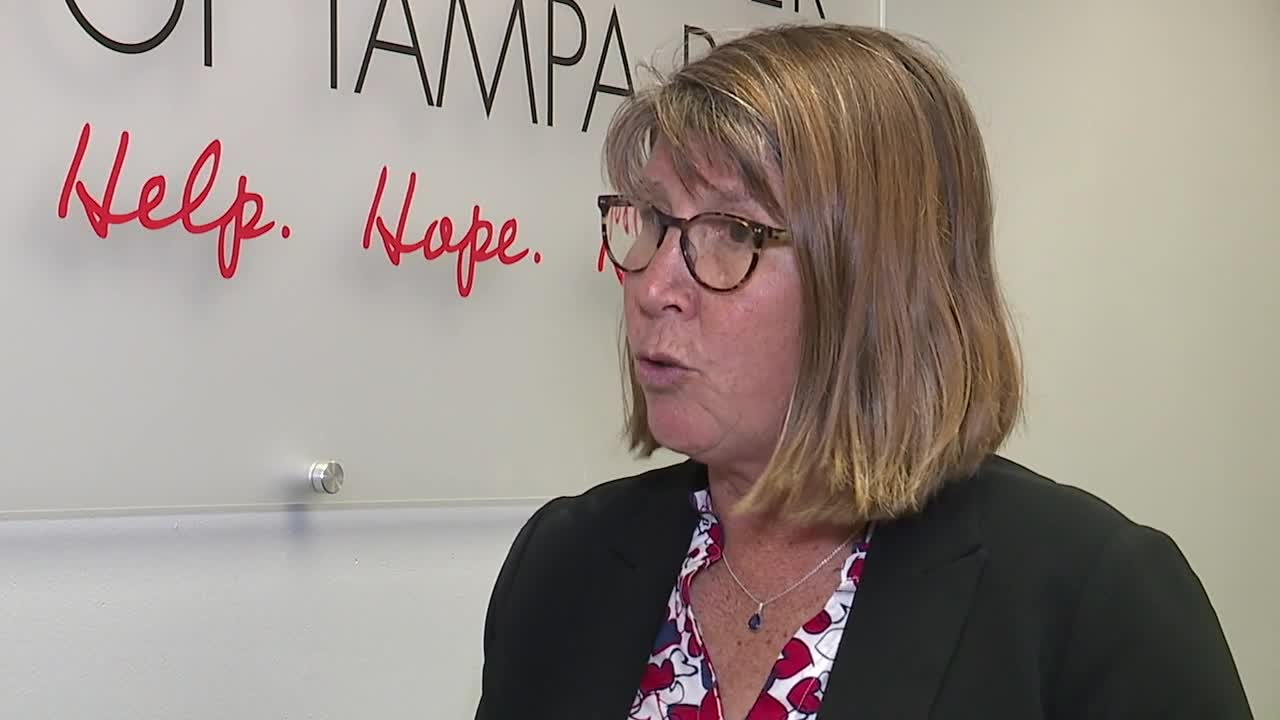TAMPA, Fla. (WFTS) — Beginning today, Florida courts and law enforcement officers have a new mandate: when someone enters the justice system with signs of mental illness, treatment, not just jail, must be on the table.
The Tristin Murphy Act, which officially takes effect Oct. 1, creates statewide processes to screen defendants for mental health needs and, in many cases, divert them into treatment programs instead of incarceration.
WATCH: New law offers treatment instead of jail for some defendants as Tristin Murphy Act becomes effective today
Named for Tristin Murphy, who died by suicide in a Florida prison in 2021, the law is the most comprehensive effort meant to close gaps between behavioral health and the state’s criminal justice system.
With the law now in effect, Florida courts can order defendants to undergo screenings and mental health evaluations much earlier in the process.
- Within 24 hours of arrest, defendants can be screened for mental illness. If they meet the criteria for involuntary examination, they must be transferred to a receiving facility. If they don’t, they may be referred for outpatient treatment instead.
- Probation conditions now require mental health evaluations and treatment compliance for defendants found incompetent but later deemed competent.
- Work release programs must include mental health and physical evaluations before inmates are approved for assignments.
- Pretrial diversion options are expanded, allowing state attorneys to steer eligible felony defendants with mental illness into treatment programs, with the possibility of charges being dismissed after completion.
- Data collection begins with the launch of the Florida Behavioral Health Data Repository at Florida State University, which will track outcomes across systems to improve care and efficiency.
The law also expands the use of the state’s Criminal Justice, Mental Health, and Substance Abuse Reinvestment Grant Program, funding specialized training for 911 operators and EMTs to better direct mental health calls to the appropriate responders.
Tristin Murphy Act Signed Into Law by ABC Action News
For behavioral health leaders like Clara Reynolds, president and CEO of the Crisis Center of Tampa Bay, the change represents a cultural shift in how Florida handles people in crisis.
“For individuals in Florida who are arrested primarily for misdemeanor offenses but also either have an identified mental health issue or are displaying behaviors that may be indicative of a mental health concern, there are new steps and new evaluations in place to be able to provide treatment rather than incarceration,” Reynolds said.

She added that many people confuse the Baker Act with treatment, when in reality it functions more like an emergency room visit.
“A Baker Act is just designed for somebody who is a danger to themselves or others, to be able to provide an evaluation for the next steps. What we want is to be able to provide that next step, whether it’s outpatient treatment, a partial hospitalization program, or something else. This now opens the door for different types of sanctions that are more treatment-based versus incarceration as the only response.”
Murphy’s struggles in Florida’s justice system highlighted the gaps the law seeks to address.
In 2021, a Charlotte County detention officer saw a pickup truck sinking in a pond outside the jail. The sheriff’s office later identified Murphy as the man nearby, watching as the vehicle sank. He denied involvement but was arrested for littering more than 500 pounds of hazardous material.

Murphy’s journey through the justice system was marked by repeated cycles of being found incompetent, restored, and sent back through the system, but without consistent access to treatment. On work release later that year, he died by suicide.
“Tristin Murphy’s story is a beautiful example of where we had a gap in our state,” Reynolds said. “He never really got the mental health treatment that he needed. The crux of the Tristin Murphy bill is to be able to provide that access.”
The creation of the new statewide behavioral health data repository is seen as another critical step.
“Every system has its own way of interfacing and funding when it comes to an individual with behavioral health issues,” Reynolds said. “If I move from law enforcement to the justice system, or to child welfare, or even to the school system, I may have three different records and three different treatment plans that don’t talk to each other. The purpose of this repository is to track outcomes across systems so we are providing the best possible care.”
For now, the law’s impact will depend on how quickly communities adapt. Reynolds encouraged anyone in crisis to seek immediate help.
“If anybody in our community has concerns, they can call 211, 24 hours a day, seven days a week. And certainly, if anyone is in a crisis or they have thoughts of suicide, please call 988. That line is also answered here at the Crisis Center of Tampa Bay.”

Florida school speed zone cameras are ripping drivers off says local magistrate
A Hillsborough County magistrate who spent months ruling on school speed zone camera cases is now blowing the whistle on Florida's controversial new camera program.

Florida school speed zone cameras are ripping drivers off says local magistrate
A Hillsborough County magistrate who spent months ruling on school speed zone camera cases is now blowing the whistle on Florida's controversial new camera program.





